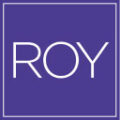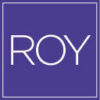Personal bankruptcy: the last option
Personal bankruptcy is the last resort that allows you to put an end to the harassment of your creditors.
In person, by phone or video conference
What is personal bankruptcy?
Personal bankruptcy is a last resort that allows you to stop the harassment of your creditors and get out of debt when other solutions to debt must be ruled out. It is a simple and effective solution that allows you to quickly say goodbye to your debts.
Similar to a consumer proposal, personal bankruptcy is conducted through a licensed insolvency trustee. The trustee will work with you to calculate your monthly budget and compile a list of your debts. The trustee will also be in charge of collecting your monthly payments.
As soon as a member of M. Roy & Associés is involved in your file, your creditors will no longer have the right to contact you. They must address the trustee directly. Personal bankruptcy as a solution to debt has two important advantages. The first is the duration; it will be shorter than a consumer proposal in almost all cases. Secondly, it should be mentioned that the fees of the licensed trustee are included in the monthly payments. This is our most cost-effective solution to free you from the majority of your debts.
Our Process
La faillite personnelle est une solution de dernier recours, c’est pourquoi nous vous assistons dans ces démarches.

We establish a clear and structured plan

We take care of the consumer proposal

We help you restore your credit score
Is personal bankruptcy right for me?
If you do not have high-value assets or your monthly income is not very high, it is likely the right solution for you. Although you do not have high-value assets, you will have the opportunity to keep ALL of your belongings.
Here are the most common profiles of people who file for personal bankruptcy as a solution to debt with M. Roy & Associés:
- Your monthly budget does not allow you to consolidate debts or make a consumer proposal;
- You have little or no assets;
- You want a quick and cost-effective solution for your debt problem.
To find out if personal bankruptcy is the right solution for you or if you have any other questions about your finances, don’t hesitate to call 1-877-123-4567 or complete the online form here to obtain a confidential and free meeting with a member of our team.
Personal bankruptcy is a last resort solution, which is why we assist you in this process.
Are you concerned about finances?
Schedule a free and confidential meeting with one of our advisors.
Questions and answers about personal bankruptcy.
Filing for bankruptcy will inevitably have an impact on your credit report. However, if you have been experiencing financial difficulties for some time, your credit rating may already be down. Many people mistakenly believe that because they make the minimum payments each month, their credit rating is good. This is not the case.
The overall debt ratio (the percentage of your debt versus your income) has a major impact on your credit rating. Your credit score will be R-9 for 6 years following your discharge, in the case of a first bankruptcy, and 14 years in the case of a second bankruptcy. However, your advisor at M. Roy & Associés will guide you through the bankruptcy process and the steps to quickly rebuild your credit after bankruptcy.
Oui. Seules les hypothèques enregistrées avant la date de votre faillite par les agences du revenu survivent à la faillite. Pour ce qui est des déductions à la source engendrées personnellement (par opposition à une responsabilité à titre d’administrateur d’une compagnie), certains de vos biens pourraient en être affectés. Si vous avez été employeur à titre personnel ou via une entreprise enregistrée, ceci pourrait s’appliquer à vous.
Yes, you have the right to have a personal bank account even if you are bankrupt and do not have any employment or money to deposit into your account.
The cost of a bankruptcy is based on several factors. First, the cost is different if it is a first or second bankruptcy. Secondly, the advisor will have to determine if you have excess income or not. Finally, the value of your assets. If you have assets that are worth more than the balance of a secured loan and you wish to keep them, it is possible to come to an agreement with the trustee. In this case, the amount of the agreement is added to the cost of the bankruptcy. Your advisor can give you more details when you meet with him.
Yes. By filing for bankruptcy, you immediately become protected by the law. Therefore, any seizure or legal proceedings are stopped, with the exception of three cases:
- Secured creditors (e.g. mortgage creditor) may start or continue legal action if you are in default under your contract. However, this action is limited to repossessing the property, but they cannot hold you responsible for any monetary loss they may suffer as a result of the repossession. This debt will be included in your bankruptcy;
- A seizure for alimony that you have to pay;
- If the creditor has obtained permission from the court. This situation rarely arises, especially when the debt is fraudulent in nature.
Most of the personal assets you own are exempt from seizure. Here is a non-exhaustive list of exempt assets:
- Any property or sum of money received as an inheritance, if the will contains the clauses provided by law to make it exempt;
- Furniture that furnishes the principal residence and is used by the household up to a value of $7,000 (liquidation value);
- Clothes necessary for the household’s life;
- Tools necessary for the personal exercise of a professional activity;
- Compensation from the CNESST and disability insurance.
If you file for bankruptcy, you must surrender all your credit cards to the trustee, whether you have a balance on the card or not.
For convenience, you can get a prepaid credit card. You will need to put the money you want to spend on the card, but you will not be able to make online purchases or reservations. Also, the prepaid credit card does not appear on your credit bureau. Once you are discharged from bankruptcy, you can get a regular credit card that will help you rebuild your credit.
If you declare bankruptcy, the law requires a bankrupt individual to disclose this fact to those with whom he does business, but nothing prevents him from continuing to earn a living. However, you will no longer be able to be a director of an incorporated company until you are released from your bankruptcy.
That being said, the primary purpose of the Bankruptcy and Insolvency Act is to allow for your financial rehabilitation. Thus, thousands of self-employed workers have been able to continue their operations after bankruptcy.
No. If you declare personal bankruptcy, it applies to all of your debts, except for those that are secured by assets you wish to keep (such as your house or car). However, nothing prevents you (but you are not obliged to do so) from repaying a creditor for a debt that you consider to be “moral” after your bankruptcy is discharged. Be careful not to compromise your financial stability, though. After bankruptcy, you can finally breathe easier. Your efforts should be focused on creating an emergency fund to deal with any unforeseen circumstances and saving for your future projects and retirement.
Yes, the majority of people can keep their assets even if they declare bankruptcy.
In theory, the minimum amount of debt necessary for a person to file for bankruptcy has been established by law at $1,000. However, it goes without saying that a person with such a small amount of debt should not engage in such a process. Additionally, you must be insolvent, meaning you are unable to meet your financial obligations as they come due.
No, only the court can decide to cancel your bankruptcy at the request of a creditor. This procedure only occurs in very rare circumstances. For example, if the court believes that you are able to pay off your debts.
In some circumstances, creditors may oppose your discharge. For example, an opposition could be presented if you have shown extravagance, sold property in a way that deprived your creditors, or continued to increase your debts when you knew you were unable to repay them. In these cases, the court could delay your discharge and/or ask you for an additional amount to be paid to the bankruptcy to obtain your discharge. These oppositions are rather rare, but possible depending on the circumstances.
Your ex-spouse must continue to honor the alimony payments. This obligation is not affected by the bankruptcy. The same applies to arrears, if any.
The duration of bankruptcy varies depending on several factors, including excess income and whether it is a first or second bankruptcy.
Yes, people in financial difficulty often do not have a job and there is nothing to prevent them from declaring bankruptcy. However, they will still have to make monthly payments for the duration of the bankruptcy.
Student loans are not dischargeable debts by law if bankruptcy is filed within seven (7) years after the end of your last studies. According to the ministry, the end of your studies is the date on which the educational institution certifies that you have stopped studying for the last time. If you need or decide to declare bankruptcy or file a consumer proposal within seven (7) years after the end of your studies, you can, however, after five (5) years following the end of your studies, apply to the court to be released from this debt. Depending on certain criteria, the court may discharge you from this debt if it deems it appropriate.
Clearly, if you make purchases on credit knowing that you will not repay these debts, these are actions that do not comply with the law. Creditors could then object to your discharge and ask the court to impose an additional contribution or to declare the debt non-dischargeable. This means that you will have to pay it after your bankruptcy, with interest. Obviously, this type of behavior is not recommended. You should inform the counselor at your first meeting if you are in this situation.
No, unless you had a wage garnishment at the time of filing for bankruptcy. In that case, we must notify your employer to end the garnishment on your wages. Otherwise, only your creditors and our team will be aware. Your friends, family, and employer do not need to know about your situation.
There are no direct impacts of your bankruptcy on your spouse’s financial situation, whether you are married or not. Each person has their own credit file, assets, and debts (unless they are joint debts), and one person’s bankruptcy will not appear in the other’s credit file. It is recommended to separate purchases between spouses as much as possible to avoid causing harm to the other in case of financial problems. Similarly, it is preferable for spouses to have individual credit cards and bank accounts.
Furthermore, if you have incurred debts with your spouse (joint credit card) or if your spouse has co-signed your loan, your bankruptcy means that you no longer have to pay this debt but your spouse remains responsible for it. Therefore, they will have to repay it in full. To avoid the debt becoming immediately repayable, we recommend that the spouse informs the creditor of your bankruptcy and ensures that they can continue to benefit from monthly payment terms. For example, if you are a co-owner of a house or a car, your spouse will remain the owner of their share and the trustee cannot force its sale.
You may still have your wages garnished despite filing for bankruptcy in order to repay the arrears owed to your ex-spouse. Alimony arrears are not dischargeable debts in bankruptcy.
As soon as you file for bankruptcy, all types of RRSPs are exempt from seizure. Only contributions made during the 12 months prior to your bankruptcy may be subject to seizure if, and only if, they are made in an RRSP that, but for the bankruptcy, would have been subject to seizure.”
Contrary to popular belief, bankruptcy does not result in the loss of all your assets. The law protects several categories of assets by making them exempt from seizure. Thus, you can keep your furniture up to a certain value. RRSPs and other pension funds are also exempt, as are your personal belongings (clothing, personal effects, etc.) and, in certain situations, tools of the trade necessary for the exercise of a profession. A car can also, in certain specific cases, be partially or fully exempt from seizure, as can your house.
The law aims to promote your financial rehabilitation, your right to work and to regain financial health. Therefore, all debts, except for the following, are dischargeable at the end of your bankruptcy (section 178 BIA):
- Fines and penalties imposed by a court (e.g. traffic tickets);
- Legal compensation for intentional physical injury (e.g., injuries caused as a result of a fight);
- A debt or obligation for child support;
- Any debt or obligation resulting from fraud, embezzlement or breach of trust while acting as a fiduciary (e.g. theft);
- A debt resulting from obtaining goods or services through false representations (e.g. if you obtained credit based on a false statement);
- A student loan if you file for bankruptcy within seven (7) years of completing your last studies (however, the court may release you upon
- A dividend to which a creditor would have been entitled if they were not notified of the bankruptcy
- Interest due on any of the above amounts.
Provincial: These tax refunds are not subject to seizure by the trustee, which means that you can keep them despite your bankruptcy. However, it could be included in your income for the duration of your bankruptcy, and have an impact on the monthly amount you have to pay in your file.
Furthermore, please note that if you owe money to Revenu Québec for a period before your bankruptcy, they may keep your tax refunds related to that period, but not for periods after the filing of your bankruptcy.
Fédéral : These tax refunds are subject to seizure for periods prior to bankruptcy and for the year of your bankruptcy. Refunds for subsequent years are not subject to seizure.
No, the money you receive from family allowances will never be seized.
Yes, absolutely. In fact, we recommend practical solutions to help you improve your credit rating. Contrary to what some personal finance advisors may claim, there is no miracle solution. Beware of counsellors who promise to rebuild your credit by charging you various fees.
First, you need to be discharged from bankruptcy and then learn to manage your credit wisely. There are good habits to adopt and bad habits to break. We will guide you through the process. After a while, your credit rating will improve well beyond your current credit rating.
« I was very nervous about going bankrupt, I thought I was going to lose everything. Ms. Beaulne put me at ease by taking the time to explain myself and to respond to all my concerns. They gave me a new breath. Thanks to everyone on the team! »
« I was very nervous about going bankrupt, I thought I was going to lose everything. Ms. Beaulne put me at ease by taking the time to explain myself and to respond to all my concerns. They gave me a new breath. Thanks to everyone on the team! »
« I was very nervous about going bankrupt, I thought I was going to lose everything. Ms. Beaulne put me at ease by taking the time to explain myself and to respond to all my concerns. They gave me a new breath. Thanks to everyone on the team! »


